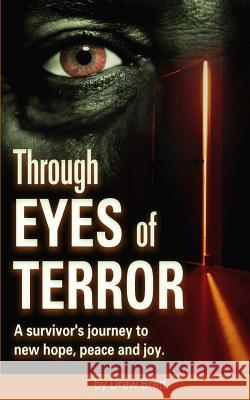Through Eyes Of Terror » książka
Through Eyes Of Terror
ISBN-13: 9780991165902 / Angielski / Miękka / 2014 / 76 str.
"My earliest memories of my life were of a family in a constant state of emotional and psychological chaos and turmoil. ... Oftentimes, fear filled my mind as I tried to find a safe place to hide from that scary presence in my home. That presence, that person in my home, was my dad." Drew Brett, a child growing up in the Midwest in the 1970s, wants a place to feel safe in a stable home. His father, normal and well-adjusted in the eyes of everyone outside of the family, is abusive toward his wife and two children. Whenever someone challenges Dad, he becomes defensive and enraged and takes it out on the family. When attempting to turn to Dad's parents, there is no help at all; Drew's grandmother in particular defends Dad's behavior, and exhibits it herself. Drew's mother finally has had enough and divorces Dad, leaving Drew and his sister with a difficult situation to face: either move to the unfamiliar California, where Mom relocates, or to remain in Nebraska in familiar surroundings, but with Dad and his unpredictable behaviors. Regardless, the children will need to see Dad for several weeks out of the year in the custody arrangement. Although the children go to California to live with their mother, Drew finds that he is victimized there by other children who make fun of him for being different from them. He is unhappy there, and even though Dad takes out his frustrations over the divorce on Drew, he makes the difficult decision to move back to Nebraska, where he is at least accustomed to the lifestyle there. Drew, a bit older now, is able to understand better why his father functions as he does by becoming further acquainted with his grandmother's behaviors. Growing into adulthood, Drew begins not only to analyze his family's behaviors and roles, but his own behaviors, which he terms as "victimology." He is determined not to repeat this pattern, which appears to follow generations, but to become emotionally healthy. This is difficult to accomplish, since he still has ties with the family and spends much of his young adulthood living with or close to them. Dad continues to abuse Drew, but is surprised when he finally defends himself. He then turns his full energy to his own healing process, and seeks professional help to recover his emotional stability and unlock his "inner child." He finds the strength to drop the resentment he feels toward his family and to pursue peace and joy, as well as untapped talents. With the resentments diminished Drew is able to follow a healthy lifestyle and break the chain of codependency and enabling behaviors that characterized his family life for so long. Although Drew presently continues the healing process, he also persists in choosing healthy options and building a positive spirit to cope with the anxiety and depression of his early life. Through these choices, he hopes to assist others who have experienced similar events in their lives to heal in productive and satisfying ways.











